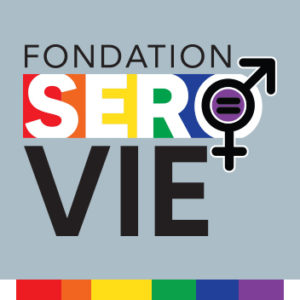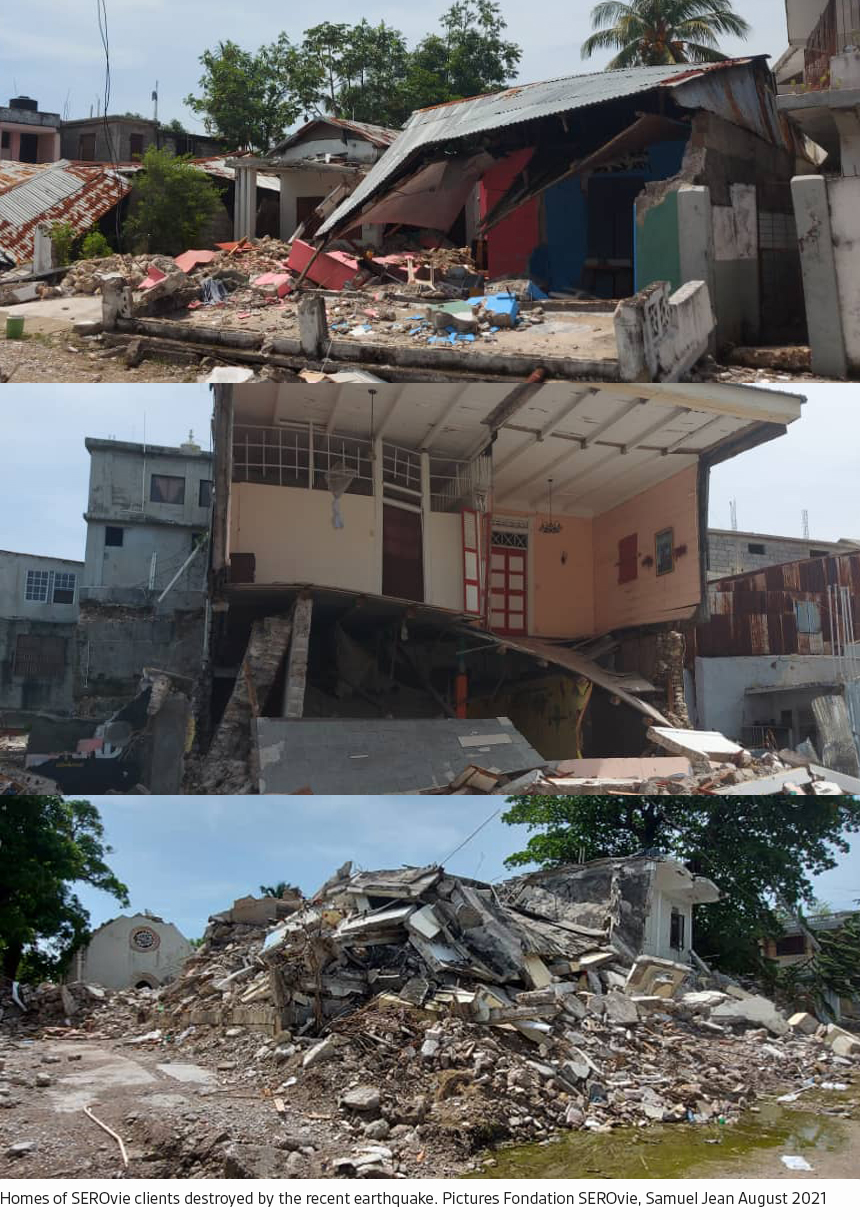
“We have written to various American allies and other organizations with no response or promises,” states project director Steeve Laguerre of SEROvie, in reference to the lack of support the LGBTQI community in Haiti has received after damage incurred by a massive earthquake coupled with tropical storm Grace on August 14. SEROvie is a community-based local organization in Haiti advocating and working for LGBTQI people for health and human rights initiatives.
Since the earthquake, the three most affected departments of Haiti (Sud, Nippes, and Grand’Anse) have increasing critical needs for food, water, shelter, and medical care. Needs assessments indicated that nearly 3,000 LGBTQI people are in dire need of humanitarian assistance.
The assessment indicated urgent needs for food distribution, hygiene kits, tents, bedding, help to rebuild portable water, and portable water treatment. It also revealed a need for emotional and psychosocial support to cope with the grief and trauma associated with the impact of this natural disaster combined with other recent disasters that have caused mass trauma within Haiti.
The Center for Disaster Philanthropy reports that Haiti has endured several traumatic events including rampant gang violence, the assassination of Haiti’s president Jovenel Moïse, and COVID-19. In the throes of a political crisis, a pandemic, malnutrition, and gang violence, aid is desperately needed to alleviate some aspects of society in which many people have no control.
Many LGBTQI people in Haiti cannot get access to primary medical care, due to fear of building collapse. Medical professionals are providing care for patients in outdoor settings. Steeve reports, “people are coming from rural mountain areas are sleeping in fields and public places, including health facilities.” This exacerbates increasing health concerns. The water supply has been disrupted at every location Steeve Laguerre and his team assessed. SEROvie anticipates needs to increase in the coming weeks.

Even before the earthquake, over 1,200 LGBTQI people were displaced by gang violence. Since the earthquake, nearly 3,000 LGBTQI people need emergency humanitarian assistance. LGBTQI people in rural areas are in critical need of primary care items such as food and water. Although aid has been provided in some capacity by international organizations such as IOM, World Food Program, UNICEF, Médecins Sans Frontières, and Project Hope, requests for aid for the LGBTQI community via SEROvie have largely been ignored.
Many requests made by LGBTQI groups regarding relief efforts are subject to religious or cultural bias. Many groups that assist after natural disasters are Christian Evangelical groups with anti LGBTQI sentiments. Numerous analyses and reports from prominent organizations highlight the impact of the earthquake on cis men and women, but few assess the impact of the earthquake on the various intersections of LGBTQI people.
According to a briefing developed by SEROvie in collaboration with the International Gay and Lesbian Human Rights Commission in 2010, international organizations and UN officials have historically provided less recognition to the vulnerabilities and severe impact that LGBTQI people face as a result of natural disasters in Haiti.
Inequalities and prejudices are often heightened during times of crisis, and threats of violence and discrimination are omnipresent. This makes the work SEROvie does all the more important because safety is a continuous concern. LGBTQI people in Haiti are in dire need of support. You can help by donating here.
